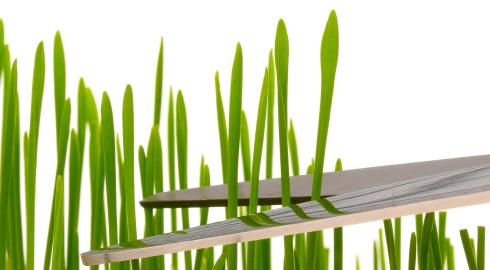“The first 99% of effort gets destroyed by the lack of the last 1% of it.”
‘Detail-orientated’ is a requirement seen on nearly every job description, yet the office environment, beset as it is with continual distractions, is often at odds with the demand for painstaking attention.
If you’ve been told you need to increase your observational powers, take some inspiration from the women who’ve already done so successfully.
GET CREATIVE TO FIND THE DISTRACTION-FREE SPACE YOU NEED
“Open plans might work well for extroverts who thrive on social interaction to get things done, but for introverts, this kind of setup can have the opposite effect, [making it] difficult to concentrate and stay on task in the office with all the surrounding noise and movement.
Since I couldn’t march in with two-by-fours to build myself an enclosure, I had to get more creative. During warmer months, I slipped out of the office to a park. Those moments were quiet and sweet, and by the time I went back to the office, the morning’s build-up of anxiety had dropped away.
I mounted a coat hanger beside my desk. A hanging coat created just enough curtained privacy to define a space where I could work without being distracted and without looking like I was erecting a wall to keep my co-workers out. A signal can be something as simple as wearing a set of headphones to show that you don’t want to be disturbed.
One day it occurred to me that no rule said that meeting rooms could only be booked for groups, so I booked myself a room for two hours and worked alone without interruptions. They were the two most blissful hours of my open-plan office life. I felt brilliant!”
CREATE A BUDDY SYSTEM
“After being picked up on typos in my monthly report, I tried really hard to eliminate errors. But the swift turnaround made it almost impossible to catch every one: I was just reading what I thought I’d written. Changing fonts, making typeface larger and printing out helped, but one or two mistakes still crept through. When reading a colleague’s reports I noticed a few grammar and consistency errors in her work, which gave me an idea. We now have a buddy system, where we commit to reading one another’s work before we submit it. Having that fresh pair of eyes has been invaluable, not just for catching typos, but also for sparking new ideas.”
PRACTICE MINDFULNESS TO TUNE INTO THE MOMENT
“When I was younger I trained in Indian classical dance and one of the things you’re taught is to focus and concentrate. That was my first introduction to being present in the moment.
I meditate every night and take Saturday to paint and write poetry, turning off my phone or leaving it in the other room. It’s almost like a reboot for your brain and your soul. It makes me so much calmer when I’m responding to emails later.
One of the things mindfulness helped me become is a better leader. It helps me pay attention not just to what I want to get done, but how I make that a win for others. When I deliver a presentation, it’s less about what I want to say, more about what others want to hear. When I’m recruiting, I’m mindful of what’s going to excite and motivate the candidate. When I’m thinking about new technology, I think more about what the customer needs.”
CREATE A CHECKLIST OF YOUR MOST COMMON MISTAKES
“When I’m completing a task for the first time, my attention to detail is good. But I make mistakes on the more routine functions in my role. On the advice of my boss, I created checklists for those business functions. I broke the job down into each step, and used it to ensure nothing was being skipped, only giving myself that tick and moving onto the next item when I was confident I’d completed each stage.
Through compartmentalising each stage, I got to know my most common mistakes, and I noted these down on the checklist too. Now I know that before I send around the latest project notes to all the programme managers, I have to double check I’ve added the names of new interested parties (I’d frequently leave people off the list). I do a ‘control+F’ check on all the attached documents to ensure I’ve stuck to the same numerical styles and formats throughout (something my boss always picked me up on).”
DIAL UP YOUR POWERS OF OBSERVATION – SHERLOCK HOLMES STYLE
Tip for honing your observational skills
Force yourself to see the world differently by participating in an initiative like the 365 Project, where you have to take one interesting picture every day.
“The idea is to gradually teach yourself to notice small details in your environment and daily life. As you do so, you’ll become more likely to notice everything that’s out of place.”
“It’s not a superhuman ability. It’s important to note when talking about Holmes that he has spent a lifetime cultivating the habits of mindfulness. So it’s not like he was just born with this ability to be in touch with the world. What we choose to notice or not notice is a way of framing it in our own mind. We have a lot of bad habits in our mind, and we have to retrain ourselves to really notice the world. Everything we do rewires the brain, but we can rewire it in a way that mindfulness eventually becomes less of an effort.”








